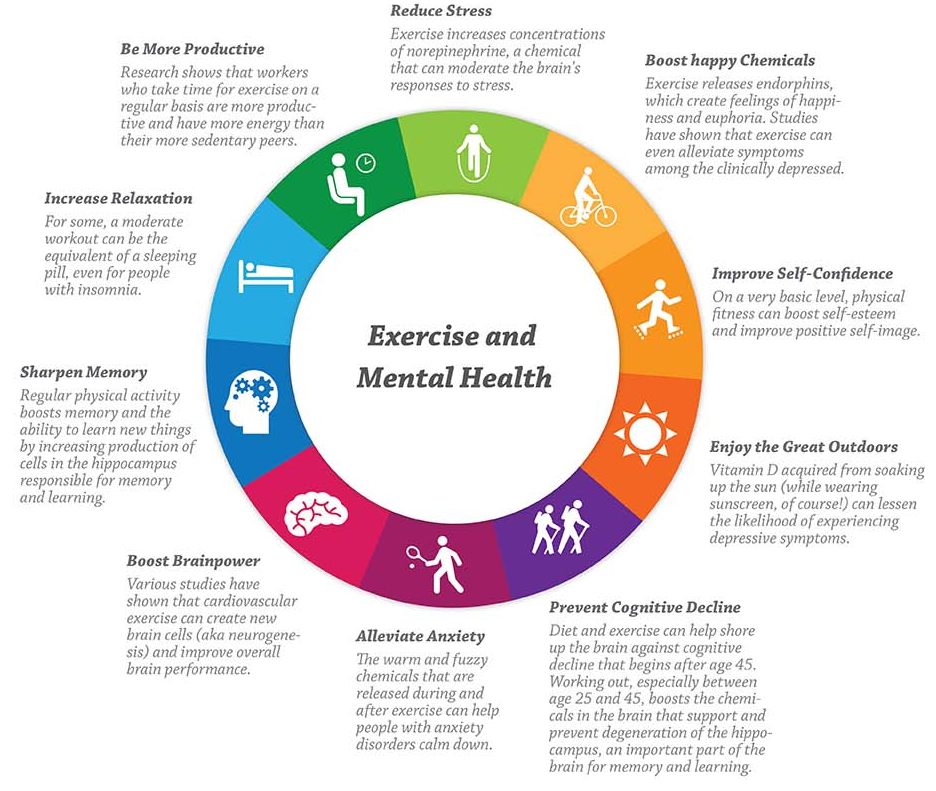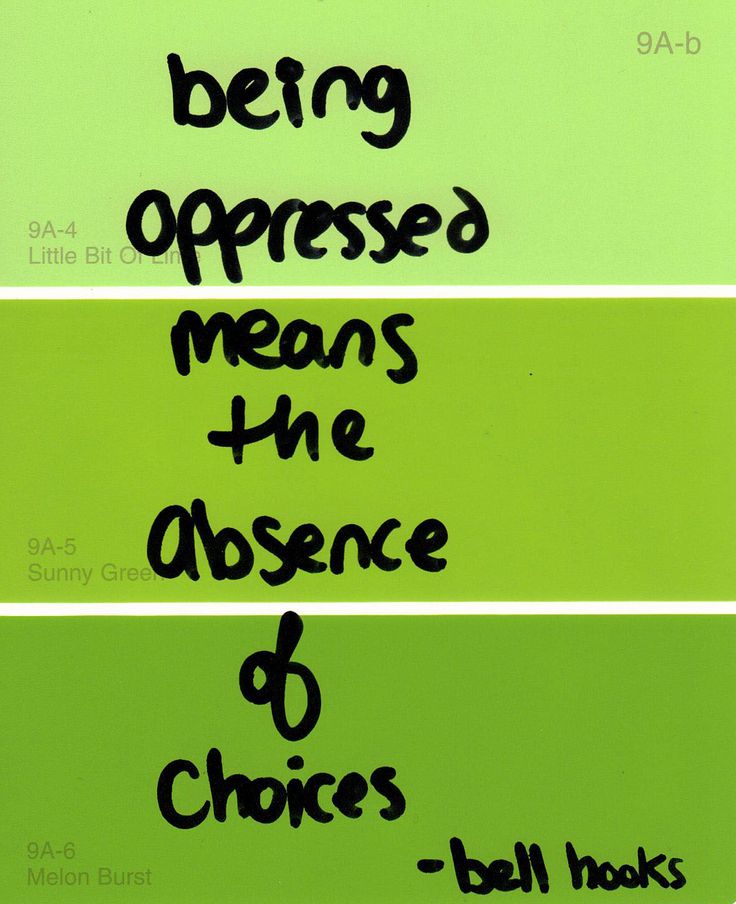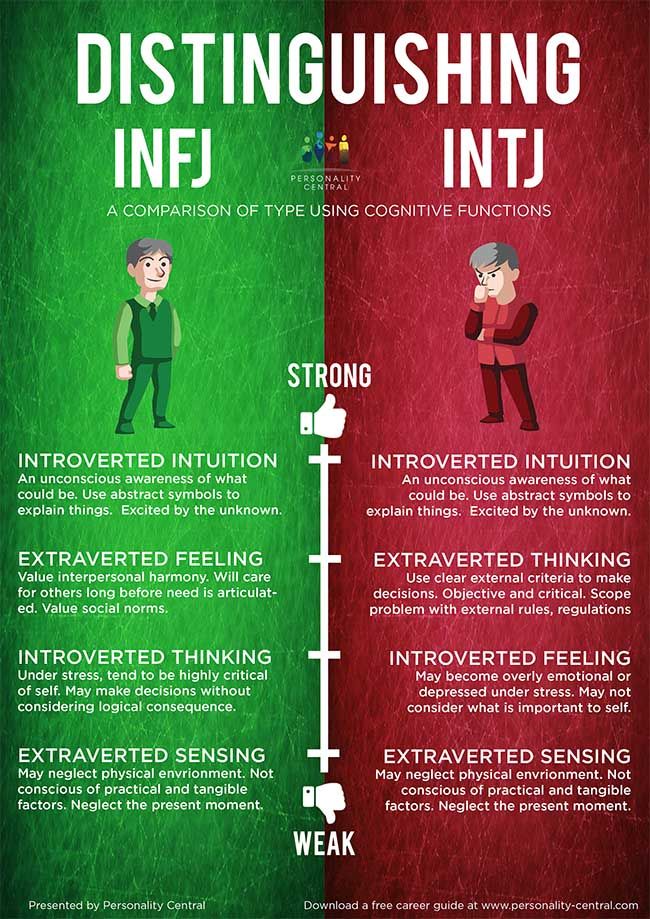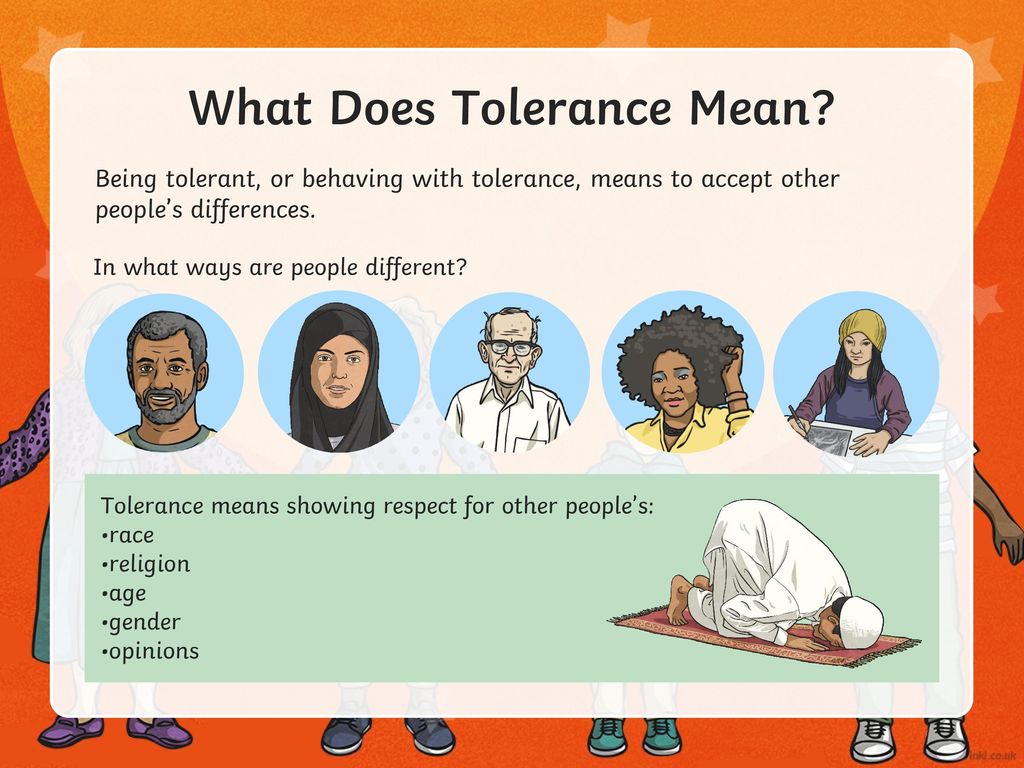Can t hold a conversation
“I can't hold a conversation” 3 Reasons Why and How to Improve
You’re at a networking event where everyone is talking, laughing, exchanging contacts. And you’re standing off to the side thinking, for the hundredth time, “I can’t hold a conversation.”
If this is you, then you’ve come to the right place! By learning the reasons why you think you can’t hold a conversation, you’ll be one step closer to improving. In fact, you’re probably a better conversationalist than you think!
#1. The “I can’t hold a conversation with anyone” mindset
We all love having deep and interesting conversations. Maybe you think if it’s not interesting, it’s not worth your time, or theirs. If uninteresting discussions make you think, “I can’t hold a conversation,” then your mindset is blocking your ability to produce social results.
Starting a conversation is hard.
For example, the meaningless chit-chat, the awkward pauses, and the painful small talk might make you question “Why can’t I hold a conversation?” The fact of the matter is, though, that those aspects often lead to deeper conversations.
Or maybe you’re at a party and think you need to say something intelligent or funny to be heard. Your mind goes blank and you say nothing. The mental pressure of trying to be “cool” and “witty” is holding you back from even holding a conversation. Both of these are examples of unhelpful mindsets to have when approaching any new social situation. They hinder your ability to hold a meaningful conversation.
By being aware of your thoughts and checking them at the door, will allow you to be a part of more social opportunities.
#2. Social anxiety and social awkwardness can prevent a good conversation
The negative mindset you have can stem from a lot of things, including social anxiety or social awkwardness. Do you ever think:
“I’m bad at meeting people.” “I’m a boring conversationalist.” “I have nothing to say.” “I can’t hold a conversation with anyone.” “Why can’t I hold a conversation?”
A 2008 study, published in the Journal of Anxiety Disorders, attempted to uncover how social awkwardness, and diagnosed Social Anxiety Disorder (SAD), can affect social interactions.
The study concluded that individuals that felt socially awkward (but didn’t have SAD), generally performed significantly better than they thought they did. They might have thought “I can’t hold a conversation,” but others disagreed. It’s like giving a speech that you stumbled through, but the message still came across in the end.
On the other hand, people with SAD were found to have social performance deficits – gaps in their communication skills that limited how they interacted. In this case, holding a conversation is actually very difficult. It’s like giving a speech without knowing the subject, or the audience.
Luckily, whether you have SAD, or just feel socially awkward, all hope is not lost. By learning ways to hold a conversation, you’ll become better equipped.
Working on yourself is about diving deep into your thoughts, history, and insecurities. Discovering how to overcome the things holding you back in life is important and can be life-changing.
Overcome and understand your thought “I never know what to say” by discovering counseling in your area by clicking here. You also get 20% off using this link.
Another resource to look into is called Talk Space. It is a way for anyone to improve their mental health in a convenient and affordable way! You’ll get matched with a licensed therapist in your state from the comfort of your device, and receive ongoing support via secure messaging and live video sessions.
#3. You haven’t learned the right skills … Yet
To learn how to improve your conversational skills, Check out our 9 Powerful Tips on How To Hold A Conversation. Conversations, like any other skill, are something that you learn. Saying, “I can’t hold a conversation,” is a lot like saying “I can’t ride a bike.” It’s not doomed to be true forever.
By learning what works and practicing, you’ll go from asking “why can’t I hold a conversation?”, to wondering, “What was I so worried about?”
Here’s a video from our course that talks about how you can start conversations.
Conversations are one of the best ways to connect with others and build quality relationships. But going into any social situation with a negative mindset can prevent you from keeping the conversation going and making lasting connections.
*Bonus: Improve your conversations in 5 minutes
Here are 5 easy tips you can follow if you want to overcome the “I can’t have a conversation” mentality.
#1. Have conversation starters in your back pocket. Be ready to ask questions.Having a few general questions to ask people you just met can help you keep the flow of the conversation going.
Protip: Follow-up questions are an easy and effective way to keep the conversation going. Harvard research says, that people who ask questions, particularly follow-up questions, may become better managers, land better jobs, and even win second dates.
Harvard research says, that people who ask questions, particularly follow-up questions, may become better managers, land better jobs, and even win second dates.
Below, Harvard research shows people who asked more questions are more liked.
#2. Use basic topics or simple questions that are “safe” topics or “feelers”
This gives you an idea about who the person is or what their personality is like. Using “safe” questions also gives you an idea of which direction you can take the conversation in.
Protip: If you want examples of feeler questions check out our post here, and with20 Strategies To Improve Conversation Skills.
#3. Remember the 7% rule.
The most commonly cited study on verbal and nonverbal communication is by Prof. Albert Mehrabian, of the University of California. He says that 7% of communication is communicated through spoken word, 38% through tone of voice, and 55% through body language.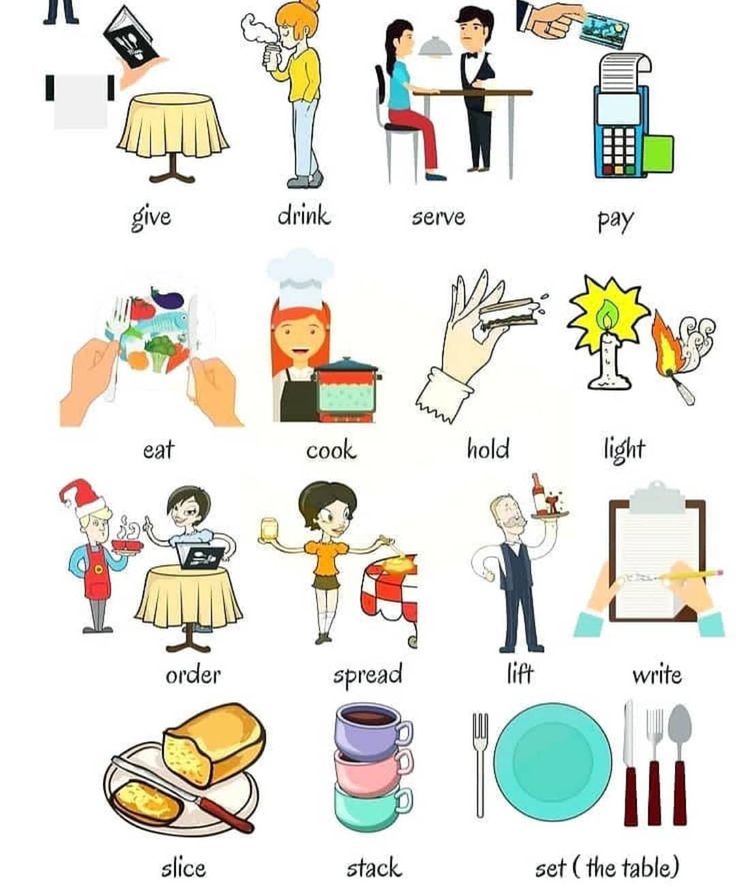
This means it’s important to complement our words with the right tone of voice and the appropriate body language. Remember this when speaking with someone on a date, during an interview, or in any social situation.
#4. Learn to be present during a conversation.
This means listening and using empathy when someone is speaking to you. The absolute first step is to put your phone away or on silent. Then, pay attention, make eye contact, and focus on the conversation. You’ll be surprised how many people just don’t listen or show interest, during a conversation, even if they don’t mean to.
#5. Exit a conversation with an intention
You’re either going to leave a conversation and never speak to that person again, or you will. If you felt a spark definitely have the intention of following up. If you’ve had a good conversation and you felt compatible then suggest a time to meet up. Simply say, “Hey, I’d really like to continue our conversation another time. How about a drink or coffee next week?”
How about a drink or coffee next week?”
How To Think Of Things To Say When Making Conversation
- Chris MacLeod, MSW
It's common for people to say they struggle to make conversation because they often can't think of things to say. When talking to someone one on one this may lead to awkward silences. In groups they may be seen as quiet. This article will provide both some short-term and longer-term pointers on how to get past this issue.
Immediate strategies for being able think of things to say
The following suggestions are about ways to come up with more things to talk about in the moment, when you're already speaking with someone:
Go in with an overall approach for making conversation
There are general road maps you can follow for making conversation. For example, a popular one is to take an interest in other people and make it your goal to discover what makes each person unique. When you start a conversation with an approach in mind, it provides you with some rough guidelines on what you can say next and where you want to try to take things. I cover some common approaches in this article:
I cover some common approaches in this article:
Overall Approaches For Making Conversation
Pay attention and keep up with the conversation going on around you
It's always easier to come up with things to talk about when you really follow along with what everyone else is saying. It's much more likely that something relevant you can add will pop into your mind, sparked by a statement someone else made. However, it's sometimes hard not to succumb to that tendency to zone out and disappear into your head. Nudging your attention back to the conversation going on in the outside world is also a good way to keep yourself from focusing on any anxious or insecure thoughts you might have. Conversations can also be a bit annoying to follow at times, like if many people are talking at once, or if the environment is loud. Sometimes it feels easier to give up and not devote your full attention to it. You get better at staying tuned in with practice.
Don't filter yourself too much when trying to think of something to say
Often when people feel like they can't think of anything to say, there are actually lots of possible contributions passing through their mind. But instead of going with them, they nix them for one reason or another: "No, I can't say that. It's too boring.", "No, that's too out of the blue.", "Oh, I'm kind of nervous saying that, though I couldn't tell you why." Often this process is quick enough that we don't notice ourselves doing it, but if you tune into your thoughts you can watch it happening. Instead of censoring yourself too much, just spit out some of the ideas going through your head. More generally, try to take the attitude that people want to get to know you and hear your thoughts.
But instead of going with them, they nix them for one reason or another: "No, I can't say that. It's too boring.", "No, that's too out of the blue.", "Oh, I'm kind of nervous saying that, though I couldn't tell you why." Often this process is quick enough that we don't notice ourselves doing it, but if you tune into your thoughts you can watch it happening. Instead of censoring yourself too much, just spit out some of the ideas going through your head. More generally, try to take the attitude that people want to get to know you and hear your thoughts.
Don't fret too much about saying generic things
There's a lot of advice out there telling you not to bore people with cliched, unoriginal conversation topics. Sometimes we get this message to the point that it paralyzes us in social situations. We'll meet someone new and draw a blank because we think it's a huge faux pas to say something uninspired, like asking them where they work.
Just say this stuff anyway. Something is better than nothing. Often, seemingly dull questions like, "What do you do for fun?", or "Seen any good movies lately?" get the ball rolling, and soon enough you're talking about something more interesting. They can be a necessary evil, a reliable, if tiresome, fallback. When people get asked questions they've had to answer a million times before, they're not always thrilled about it, but don't hold it too against whomever's asking either.
Something is better than nothing. Often, seemingly dull questions like, "What do you do for fun?", or "Seen any good movies lately?" get the ball rolling, and soon enough you're talking about something more interesting. They can be a necessary evil, a reliable, if tiresome, fallback. When people get asked questions they've had to answer a million times before, they're not always thrilled about it, but don't hold it too against whomever's asking either.
Also, in general you shouldn't put too much pressure on yourself by feeling every last thing that comes out of your mouth has to be extremely original, insightful, and entertaining. People mostly talk about pretty humdrum topics, and are often happy just to be around their friends and pass the time. It's fine to socialize in a simple, friendly way.
Don't stress too much about switching topics
You may have something you want to say, but feel you have to abandon it because you can't think of a smooth segue into it. When friends talk they bring up new topics all the time. When one conversation thread has come to an end, it's normal to jump to something unrelated. It's okay to change the subject as long as the transition isn't completely abrupt and jarring, and you haven't cut someone off from a point they wanted to stay on. If you do switch topics, here are some suggestions:
When friends talk they bring up new topics all the time. When one conversation thread has come to an end, it's normal to jump to something unrelated. It's okay to change the subject as long as the transition isn't completely abrupt and jarring, and you haven't cut someone off from a point they wanted to stay on. If you do switch topics, here are some suggestions:
- If the other person is expecting a reply, give them one first. Like if they asked how your family's doing, fill them in on any news, and maybe quickly ask about theirs. Then you can jump to the next thing.
- Make a shift seem less sudden by tacking on a phrase like, "That reminds me...", "Speaking of...", "I'm not sure why, but that makes me think of...", or "This is going to sound random, but..."
- If you pause for a few seconds before changing topics it can signal, "Looks like that subject is done. I'm gonna switch to something else."
Practice noticing all the "jumping off points" in the statements people make
Not everything you say has to directly tie into the sentence made right before. However, if you pay attention to what the other person says, their statements can give you a lot of ideas. For example, if they tell you, "My weekend at the cottage was fun. I went jet skiing for the first time," some possible jumping off points are:
However, if you pay attention to what the other person says, their statements can give you a lot of ideas. For example, if they tell you, "My weekend at the cottage was fun. I went jet skiing for the first time," some possible jumping off points are:
- Weekend - Talk about how your own weekend was, e.g., "Oh, that sounds fun. I stayed in town and went to a concert on Saturday."
- Cottage - "Oh, nice.. Was the cottage more isolated, or on a busier lake? Whose cottage is it, your family's, a friend's, a rental?"
- Jet skiing - "Wow, I've never done that. How'd you find it?" or, "I remember doing that as a kid. The newer models must be way more fun. How was it?"
- First time jet skiing - "It's not jet skiing, but I remember the first time I ever drove a boat..."
As always, there's no single correct response so any of those could be good ways to keep the conversation going.
Sometimes people will set up obvious jumping off points for you because they have something they want to talk about, but don't want to launch right into it without gauging your interest. For example, they'll say, "Man, the weirdest thing happened to me at the music festival..." You just have to say, "Oh yeah? What?" and they'll tell you.
For example, they'll say, "Man, the weirdest thing happened to me at the music festival..." You just have to say, "Oh yeah? What?" and they'll tell you.
Elaborate on the things you have to say
If it's your turn to talk, instead of saying "Fine" or "It was good" or "Yeah...", flesh out your answer. Give your opinion. Tell a mini-story about you did on the weekend, instead of simply saying it was fun. Say more about the TV show you just mentioned. Without rambling on, try to stretch out your turn to speak. You can often find additional things to talk about just by going into more detail on the material you've already put out there.
Realize you often don't have to answer questions ultra-literally
When people ask you a question on one level they are curious to know the answer, but on another they just want to have a fun, engaging conversation. If you don't exactly reply to what they asked, but still say something interesting, they'll usually be happy with your response. For example, someone asks you if you've seen any good movies lately. You haven't watched any in the last few weeks, and could only literally respond with "No", which isn't the meatiest contribution. The exchange doesn't have to hit a snag. Instead you could say something like, "I've been doing other things for fun. I've been teaching myself to play the guitar lately. It's been rough on my fingers, but I'm slowly getting the hang of it." Obviously there are times where you will need to properly answer a question, but it can open up a lot of options if you know you have more flexibility in how you can reply many of them.
For example, someone asks you if you've seen any good movies lately. You haven't watched any in the last few weeks, and could only literally respond with "No", which isn't the meatiest contribution. The exchange doesn't have to hit a snag. Instead you could say something like, "I've been doing other things for fun. I've been teaching myself to play the guitar lately. It's been rough on my fingers, but I'm slowly getting the hang of it." Obviously there are times where you will need to properly answer a question, but it can open up a lot of options if you know you have more flexibility in how you can reply many of them.
Ask someone their thoughts on the question or topic you just spoke about
You can't build a whole conversation around this technique, but it's simple and can help you here and there if you're at a loss for words. If you just answered a question, ask the same one back to them (e.g., "I'm going into the city to visit some old college friends. What're your plans this weekend?"). If you gave your opinion and observations on an issue first, then after you're done, you can ask them what their thoughts are.
If you gave your opinion and observations on an issue first, then after you're done, you can ask them what their thoughts are.
If they just spoke about something, act as if they just asked for your opinion
Even if they didn't explicitly go, "So that's my take on the topic. What's yours?" you've always got unwritten permission to share your thoughts after they're done.
Have some topics or statements prepared ahead of time
This takes some pre-planning, but you can often do it just an hour or two ahead of time, so I put it under the immediate strategies.
You'll see advice saying things like, "Before you go to a party it's always good to catch up on the news, so you'll have a few ready-to-go topics prepared, or you'll have something to add if someone else brings up a current event" or, "If you know you'll get asked a certain question a lot, it helps to have an interesting little blurb to give in reply". Sometimes people will prepare in a more general way and keep a few topics in their back pocket that they know they can bring out whenever the discussion hits a lull. This could be as simple as asking, "So has anyone read any good books lately?"
This could be as simple as asking, "So has anyone read any good books lately?"
It never hurts to have some go-to statements or topics you can draw on. However, I find it's hard to remember more than a handful of them at once. There's no need to try to memorize thirty different lines you could use at a party. In the moment you'll probably blank on most of them anyway, or get stuck going through a giant mental list to pick out the best option. If you've only got three choices it's easier to just go with one.
Article continues below...
If someone says something where you don't have anything you can contribute, you can just be open about it
Often we'll come to a spot where we can't think of what to say because what the other person has said has given us nothing to go on. Like if you know or care nothing about cars and someone tells you the McLaren MP4-12C's engine produces 592 bhp, odds are your mind is going to go, "Uhhhhh. ....". In these cases rather than scrambling to try to come up with a relevant response, you can say what you're thinking - "Ha ha, sorry. I don't know much about that stuff."
....". In these cases rather than scrambling to try to come up with a relevant response, you can say what you're thinking - "Ha ha, sorry. I don't know much about that stuff."
Try not to leave it hanging there though. Some people are too quick to give up on a conversation when it turns out there's one thing they don't have in common with someone. Often once you get your lack of familiarity about the topic out in the open, you'll then find a way to get the conversation going again. Like in the example above you might then think to ask, "So what is 'bhp' anyway?", or the other person might realize he needs to cut out the technical details, and present the facts in a way you can relate to better, e.g., regardless of the dry numbers, he's talking about a fast, cool looking car he's excited about. Or maybe you'll mutually decide to chat about something else.
Another way you can be left with a loss for words is if the other person says something that rubs you the wrong way
Imagine you're talking to a seemingly grounded, intelligent person, and then out of nowhere they say, "I think fashion is super important. I don't trust anyone who spends less than $1000 a month on new clothes." It would stun you into silence. If you were thinking anything it would probably be something like, "Wow... That is so tone deaf I have no idea how to respond." We tend to have that response any time someone says something that strikes us as socially inappropriate or blatantly wrong. A milder example may be if someone says, "Have I read any good books lately? No, I don't read really." The person who asked may think, "Wha? How can someone not read?!?" and not know how to follow up.
I don't trust anyone who spends less than $1000 a month on new clothes." It would stun you into silence. If you were thinking anything it would probably be something like, "Wow... That is so tone deaf I have no idea how to respond." We tend to have that response any time someone says something that strikes us as socially inappropriate or blatantly wrong. A milder example may be if someone says, "Have I read any good books lately? No, I don't read really." The person who asked may think, "Wha? How can someone not read?!?" and not know how to follow up.
Knowing this can happen can help you counteract it a bit. Rather than beginning to panic because an awkward silence may be imminent, you can use a few fallback responses. You could quickly acknowledge their opinion and change the subject. Or you could adopt a curious stance and question them about it more. In some cases you could politely say you feel differently.
Longer-term approaches for having more things to say in conversations
The ideas below will help you have an easier time thinking of things to say in conversations down the road.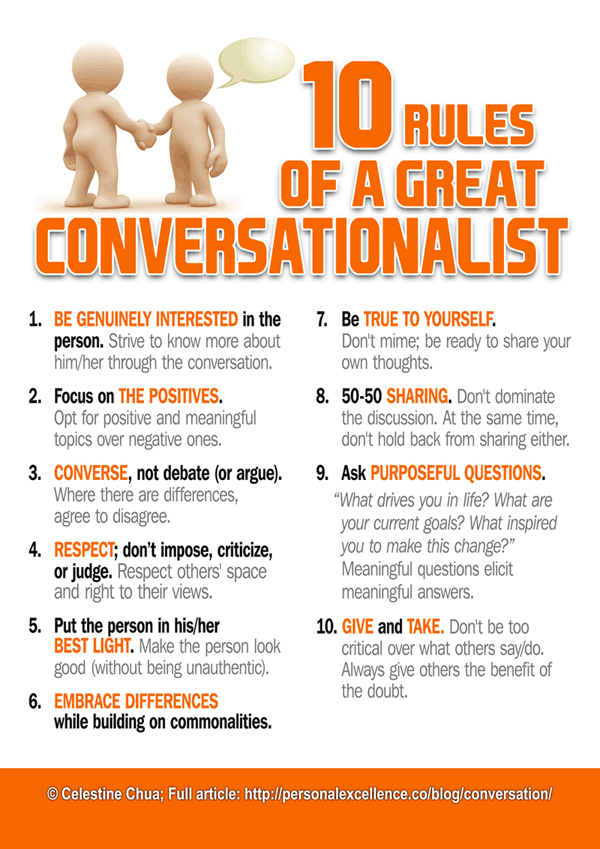
Know you have way more to talk about than you may assume
People who have trouble with conversation sometimes claim they have nothing to talk about, and they "know" they're boring because all they do is work or play video games or whatever. Everyone has more topics they can speak about than they think. Even if most of your time is taken up by one so-called boring pastime, you still watch the odd movie, catch bits of the news, or have funny little things happen to you as you go about your day. You have your unique perspective and opinions on all of them. You have thoughts on your dreams for the future, your family, current events, larger philosophical questions, what it's like to live in your area, what type of cereal tastes the best, what cats are like as pets, and on and on and on. Don't unnecessarily dismiss conversation ideas with, "Well, sure, I have an opinion on that, but no one wants to hear it, so it doesn't count." Any of them could potentially work in the right context.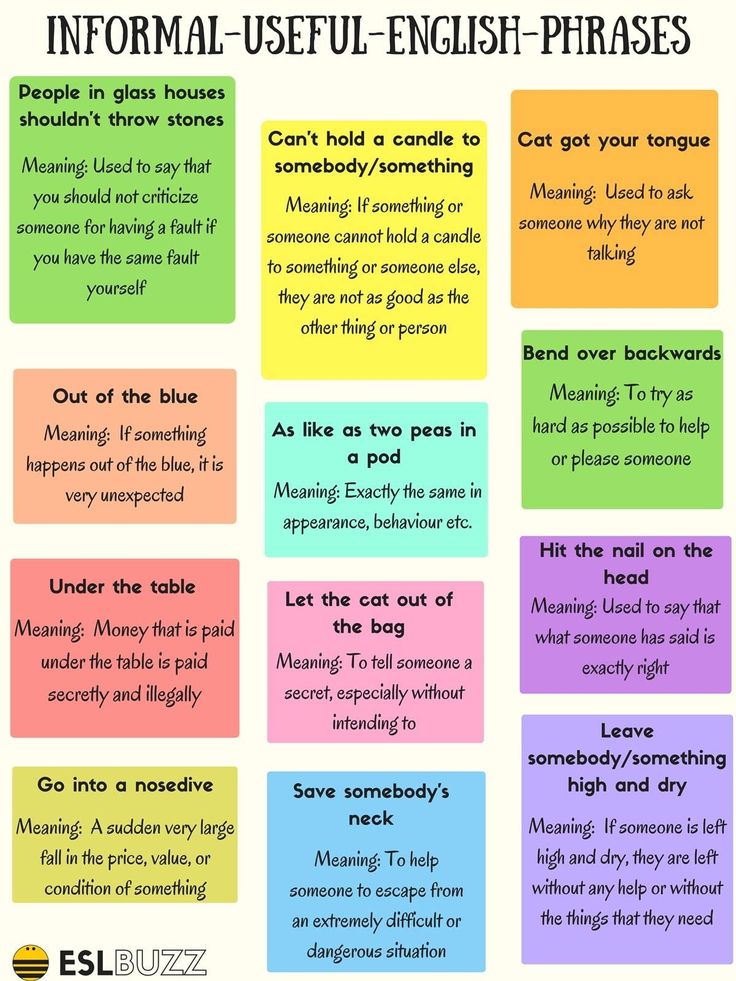 Take some time to think about the range of things you could potentially bring up in the future.
Take some time to think about the range of things you could potentially bring up in the future.
Learn something about a range of topics
This is a classic recommendation. The more random information and experiences you have floating around in your head, the easier it is to chat with people. If you have enough stuff stored away in your brain then pretty much anything someone says will trigger something you could contribute. It's sometimes eerie how you can learn about some seemingly obscure new topic earlier in the day, and then it will come up in discussion that very evening. So try new things, read a variety of books and websites, watch a mix of different TV shows, movies, and online videos, listen to podcasts, and so on.
This is a very pragmatic piece of advice, but I find it never hurts to be at least somewhat familiar with the things other people tend to be interested in and are likely to bring up. Even if you can't have an in-depth conversation about a certain area, being able to chat about it for a minute or two can earn you points.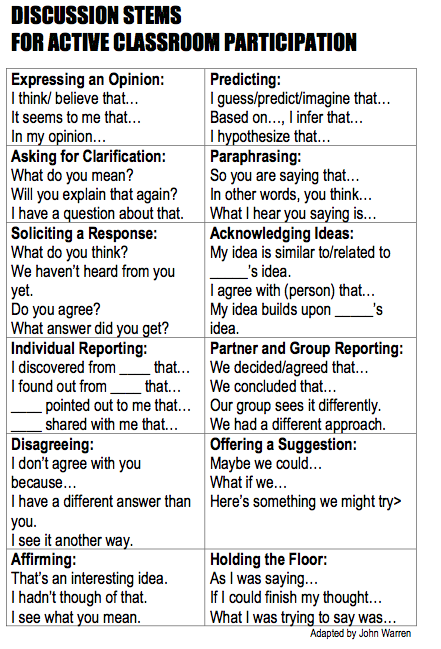 Like you may not know everything about a certain popular TV show, but having a factoid or two about it to bring up may help a conversation go more smoothly.
Like you may not know everything about a certain popular TV show, but having a factoid or two about it to bring up may help a conversation go more smoothly.
Just get more comfortable and experienced with talking to people in general
If talking to people makes you anxious or insecure, you'll have a more difficult time simply because your nerves will interfere with your ability to come up with things to say. Your mind can go blank. The unpleasant physical sensations can distract you. You're more likely to have thoughts like, "No one cares what I have to say" or, "I have to impress everyone", which lead to filtering yourself too much. You'll also have trouble keeping your focus on the other person and what they're saying.
In the most general sense, as you become more practiced and comfortable with talking to people, and you tackle your feelings of shyness, you'll start to relax more, and that will allow your mental resources to be more free and loose. Some more-specific points are below.
Become more comfortable with certain topics and conversation styles
At times someone won't be able to come up with anything to say because the conversation has reached a point where the only thing they can think to add is something they're not comfortable sharing. For example:
- They may not like talking about their love life.
- They may be scared to give their honest opinions, for fear of offending someone.
- They may believe they can't share one of their "boring" stories.
- They may feel inhibited and uncomfortable with speaking up when everyone else is being loud and blurting out crude jokes.
- Or more generally, they may just have a hard time with one on one or group conversations.
Over time it's possible to gradually face these conversational fears and start to feel more at ease with those topics or situations. As you do so you'll unlock more options for things you can contribute.
Become more comfortable around certain people
If a specific type of person intimidates us we'll have a harder time thinking of things to say because of the anxiety and insecurities they bring up. If we find someone intimidating because we care about their opinion of us, we'll also try watch what we say and second guess everything. We'll feel if we don't say the exact "right" things they'll lose interest. If we can slowly get used to these types of people, we'll be able to speak more freely.
Learn to relate to a wider variety of people
We sometimes find it trickier to make conversation with people who have different interests, priorities, and ways of looking at the world. Not always, of course. Sometimes we're fascinated by people who are different, and find it easy to engage them. However, at other times we find ourselves thinking, "I have nothing to say to this person. We don't think alike at all. We hardly have anything in common."
You may find you can relate to these types of people better if you make an effort to put yourself in their shoes. Genuinely try to get a sense of why they think the way they do, like the things they like, and hold certain beliefs. You may be able to do this through some research in your down time. For example, if you work in a more creative position, and don't understand the mentality of the money-focused Sales & Marketing types at your company, perhaps by going through some books on those topics you'll get a better idea of where they're coming from. Or you could learn about someone through firsthand experience. Like a guy who dislikes rowdy frat bros may try partying for a bit, to see if he can get a sense of what all the fuss is about and what they see in it.
You may be able to do this through some research in your down time. For example, if you work in a more creative position, and don't understand the mentality of the money-focused Sales & Marketing types at your company, perhaps by going through some books on those topics you'll get a better idea of where they're coming from. Or you could learn about someone through firsthand experience. Like a guy who dislikes rowdy frat bros may try partying for a bit, to see if he can get a sense of what all the fuss is about and what they see in it.
Trying to get a sense of where other people are coming from won't convert you into one of them, or cause you to suddenly endorse all their values. However, when it comes to making conversation with them, it'll probably become simpler. You won't be look at them like they're an alien, and nothing you have to say could possibly resonate with them.
The advice in this article was more general. If you find you specifically struggle to keep conversations going with people you know better, you may also want to read the following:
How To Have Things To Say To Someone You're Dating Or Good Friends With
I avoid communication, I can't keep up a conversation, I don't know anything in life, I don't know how
Requests for helpWrite your story
So much time wasted! It's like she slept through her life.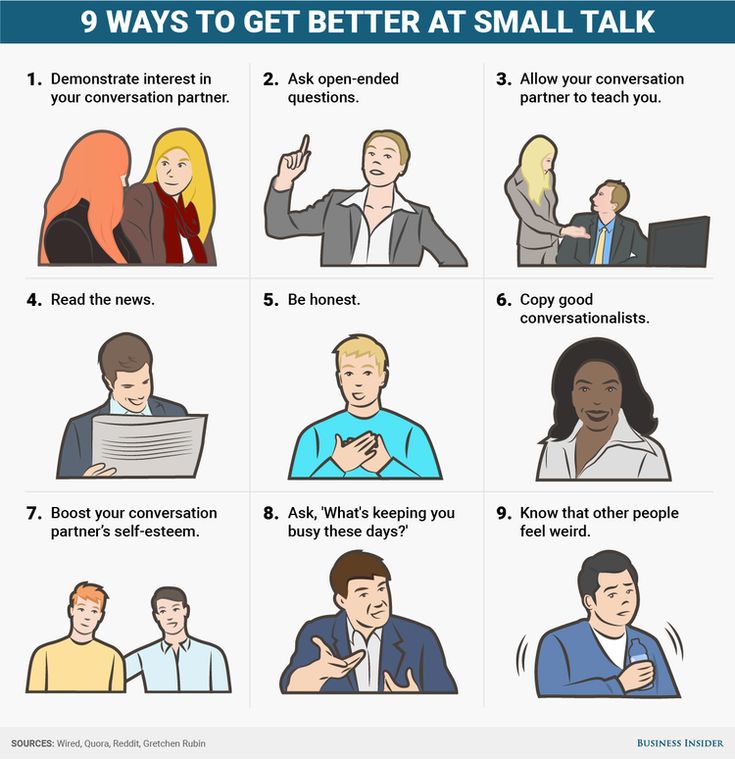 I didn’t put anything in myself, I didn’t develop it. Since childhood, very insecure, she went with the flow, not trying to find herself in anything. There were no goals, no interests. I didn't even learn how to talk to people. Now I consider myself completely uninteresting, stupid, cowardly. I avoid communication, because I can’t keep up the conversation, I don’t know anything in life, I don’t know how. There is absolutely nothing to tell - she lived like in a cocoon. This lowers self-esteem even more. I get lost in companies and collectives. Everyone lives by something, but I exist. It's more comfortable to be alone. I began to read, to be interested in the world. So I can raise the intellect, but what about communication? It is necessary for normal development!! And I'm so afraid to enter the adult world as a little fool. Ashamed. But I so want a full life in my youth !!!! I don't know how to break the circle of fear. Life goes on, and every day I stand still.
I didn’t put anything in myself, I didn’t develop it. Since childhood, very insecure, she went with the flow, not trying to find herself in anything. There were no goals, no interests. I didn't even learn how to talk to people. Now I consider myself completely uninteresting, stupid, cowardly. I avoid communication, because I can’t keep up the conversation, I don’t know anything in life, I don’t know how. There is absolutely nothing to tell - she lived like in a cocoon. This lowers self-esteem even more. I get lost in companies and collectives. Everyone lives by something, but I exist. It's more comfortable to be alone. I began to read, to be interested in the world. So I can raise the intellect, but what about communication? It is necessary for normal development!! And I'm so afraid to enter the adult world as a little fool. Ashamed. But I so want a full life in my youth !!!! I don't know how to break the circle of fear. Life goes on, and every day I stand still.
22, age: MiruMir / 12/10/2009
Responses:
Daughter, cry over someone else's pain and the soul will come to life! And with a living soul, everyone will need you and you yourself will always be joyful!
Sergey, age: 40 / 12/10/2009
Darling, what are you! all those skills that you do not have can and should be developed. Let's say you don't know how to communicate! a lot of people don't know how to do this. such skills can be acquired - I was helped by psychological trainings, in which I became more confident. believe me, there were a lot of people of different ages who are shy or don't know how to communicate! but they did it. understand, this is also work - to learn to communicate, and there are a lot of ways. try to find a good psychologist, your problem is a complex. Just don't you dare sit back! don't sit at home and cry about what a little fool you are! act, although somewhere you may have to break yourself and your fear, uncertainty. it can be hard, but change is not always easy.
Just don't you dare sit back! don't sit at home and cry about what a little fool you are! act, although somewhere you may have to break yourself and your fear, uncertainty. it can be hard, but change is not always easy.
but as for the fact that you haven’t developed anything in yourself, you are very young, and you can start doing it right now. I know many people who only after 30 found their job in life, and you are only 22 - you and more time. don't put limits on yourself. love to read - well done! what else do you like? think and do ... good luck to you, everything will be fine.
Ann, age: 12/24/2009
What is meant by a fulfilling life? I understand that a full-fledged for you is when a wide circle of friends? This is not so, a person can realize himself in other things, even more than that, most of the really good things require silence and solitude.
So, I think it's worth deciding that there's nothing wrong with being alone. You won't read in a crowd of friends, will you? Well done for raising your intellectual level. By the way, this can be useful in communication :). It is always interesting to talk to a person who can tell you something interesting. As for overcoming fear, here you have to make an effort on yourself: the first step. Talk to someone yourself: "Hi, how are you? You look good." The first time will be very difficult, then it will be easier. Don't worry, a lot of people go through this and they succeed. It's just that their efforts are less noticeable than the loud laughter and conversation of liberated people.
You won't read in a crowd of friends, will you? Well done for raising your intellectual level. By the way, this can be useful in communication :). It is always interesting to talk to a person who can tell you something interesting. As for overcoming fear, here you have to make an effort on yourself: the first step. Talk to someone yourself: "Hi, how are you? You look good." The first time will be very difficult, then it will be easier. Don't worry, a lot of people go through this and they succeed. It's just that their efforts are less noticeable than the loud laughter and conversation of liberated people.
About lack of self-confidence and going with the flow:
Not long ago, at one Christian forum, I read what the phrase "Blessed are the poor in spirit, for theirs is the Kingdom of God." It turns out that the less a person is confident in his own strength and superiority, the more space he leaves in his soul for God, which means that his confidence in his actions and life in general rests on a stronger foundation.
Patience to you and tolerance.
Gata , age: 25/11.12.2009
Cute girl! You haven't overslept, your life is just beginning. I had exactly the same thoughts and feelings at your age. I wanted to communicate, but ... I didn’t know how to communicate, I didn’t know where to start, what to say to whom ... I was also worried about this. Over time, I realized that communication for such a closed nature, like me, most often brings one tension, tires and only once again makes you think about your own personal insolvency. Therefore, for the sake of self-preservation, so as not to injure myself too much with failures, I stopped striving for communication at all costs. It was possible to establish contact with someone - well, it was not possible - well, well ... Certain efforts on oneself, of course, have to be done - self-improvement is still necessary! But, probably, you should not treat yourself too harshly, force yourself to do something against which your whole nature is constantly rebelling. Accept yourself for who you are. Who said that being outgoing and active is necessarily a good thing, but being introverted is necessarily a bad thing? These are all stereotypes. You can't change character no matter how hard you try. Corrections can and should be made, but there is no point in breaking yourself. You are great for reading, being interested in the world. Gradually, somewhere in the team, insert a word to the place, then tell an interesting story, then something else. The main thing - do not be afraid to do it! And then people will listen to you themselves, and even ask for advice. To have weight in society, it is not at all necessary to be a laugher and the soul of the company. One can be a little talkative person, but at the same time make such true and original judgments that they will be valued at least as much as the nightingale trills of note talkers. Do not seek to communicate anyhow with anyone, just not to be alone. Expand your horizons, think more about life, analyze it.
Accept yourself for who you are. Who said that being outgoing and active is necessarily a good thing, but being introverted is necessarily a bad thing? These are all stereotypes. You can't change character no matter how hard you try. Corrections can and should be made, but there is no point in breaking yourself. You are great for reading, being interested in the world. Gradually, somewhere in the team, insert a word to the place, then tell an interesting story, then something else. The main thing - do not be afraid to do it! And then people will listen to you themselves, and even ask for advice. To have weight in society, it is not at all necessary to be a laugher and the soul of the company. One can be a little talkative person, but at the same time make such true and original judgments that they will be valued at least as much as the nightingale trills of note talkers. Do not seek to communicate anyhow with anyone, just not to be alone. Expand your horizons, think more about life, analyze it. Over time, everything will work out, calm down and do not force things. Don't be too hard on yourself, don't be so critical of yourself. Something worked out - praise yourself, it didn't work out - tell yourself: "Just think! Who is not mistaken?" Focus less on your fears, try not to think about them, and slowly everything will start to work out for you as if by itself. If you really need communication, you will definitely have it, and with very good people. Most often, what we are waiting for happens completely unexpectedly. So take your time, work on yourself slowly, believe in yourself, love yourself and enjoy life. All the very best to you!
Over time, everything will work out, calm down and do not force things. Don't be too hard on yourself, don't be so critical of yourself. Something worked out - praise yourself, it didn't work out - tell yourself: "Just think! Who is not mistaken?" Focus less on your fears, try not to think about them, and slowly everything will start to work out for you as if by itself. If you really need communication, you will definitely have it, and with very good people. Most often, what we are waiting for happens completely unexpectedly. So take your time, work on yourself slowly, believe in yourself, love yourself and enjoy life. All the very best to you!
Svetlana, age: 39 / 12/11/2009
Hello! I have the same problems as you. I am a little older than you, but I also live in a cocoon and feel like a little girl. Write to me, Mirumir. Let's learn to communicate together! ;) From the moderator: girls, welcome to our forum: https://pobedish.ru/forum/
Yana, age: 23 / 21. 12.2009
12.2009
Honey, everything will be fine! All life is in your hands and you can do as much as you want for yourself. And for this you need to love yourself: the way you are. Small, funny, but ready for change, ready to take responsibility for your actions and deeds! Love yourself, so beautiful and young! Your smile, your warmth! And you will want people around you and they will be around you! You are beautiful and interesting. Love yourself.
OLIK, Age: 25/11/11/2010
Previous request for the extension of
Return to the beginning of section
| version for printing |
#1
#2
Guest
They have not learned the elementary - to talk to people, to listen to them, and since the quality of our life is absolutely identical to the quality of our communication - your life will be dull and most likely not rich in money and events.
Everyone can keep up a conversation, not everyone can. Learn.
#3
#4
No guest
You are an introvert just like me! The same situation when half are not familiar to me, immediately stupor. I used to try to portray interest and sociability, but this made me feel bad. Behave as you please. Or is it better to listen more and occasionally respond, you can say that you are a good listener rather than a storyteller)
#5
#6
I'm exactly the same 03 flash in the 0 night ✨ Either I feel comfortable with people right away and it’s like I’ve known a person for a hundred years, I laugh, I communicate, or I close myself in general and it’s easier for me to blunt into the screen of a mobile phone. Here is such an extreme. You are absolutely normal. So the company is simply not yours. Do not join, but choose the environment.
Here is such an extreme. You are absolutely normal. So the company is simply not yours. Do not join, but choose the environment.
#7
#8
#9,0002
#10
#11
#12
#13
Guest
This looks like an introversion problem. When necessary, but you do not have tangible bonuses and therefore reluctance
When necessary, but you do not have tangible bonuses and therefore reluctance
You learn this successfully if, for example, business is at stake. You go and have fun and enjoy. Troubles how to get rid of after calls and visits. But this also has its own practice)))
#14
#15
Guest
I understand that Intro is intro for years I don’t want to go to bed and I don’t want to go to bed.. Why, if I am the way I am.. Almost no one accepts me, it’s boring with me and I’m bored with people.. It’s easier to be alone
#16
#17
Guest removes objection
To automatism. If there is a higher goal than your own comfort. In addition, it is easier for an introvert to take over the audience, due to the depth. No need to happily look into your eyes, everything is yours
If there is a higher goal than your own comfort. In addition, it is easier for an introvert to take over the audience, due to the depth. No need to happily look into your eyes, everything is yours
#18
Guest
attention, but it’s more likely with a minus sign and always has a wary character .. As if I’m dangerous to them with something ... They don’t like me, reach out to me, they don’t want to communicate, they just seem to be afraid and shun ... Communication and contact are almost non-existent with whom I don’t .... Anyone who is trying to hurt in place I put strictly, distinctly but diplomatically .. After that, there is an absolute vacuum around me .. If I don’t mark the boundaries, familiarity and disrespect begin .. The construct does not work and I close myself ... In I work in a team as if I was alone there ....
#19
No name
Author, I'm the same and it doesn't bother me, because I know that I'm just not interested in these people, my social circle is not mine! It’s the same with you))) And I realized that if you’re bored, you need to get up and go about your business, and not like me in another room😆
511 answers
The man immediately warned that all property was recorded for children
589 answers
Such a salary - not such a salary - not such a salary I want to work
392 answers
A lie 22 years long.
 How to destroy?
How to destroy? 707 answers
Husband left, 2 months of depression... How will you cope if you are left all alone?
answer
#27
#28 9000 should about yourself beloved. Then the puzzle will come together. Set goals to start
#29
Guest
I am the same, the author. I can talk a lot and for a long time on some specific topics, but this chatter with strangers on unimportant and uninteresting topics is killing me. If I start to pretend, it turns out clumsily and unnaturally. So I try to avoid all sorts of feasts, and I don’t participate in empty conversations. I learned (and am still learning) to score on people. Well, they will think and think that it is strange, but I feel comfortable. 9January 04, 2019
I learned (and am still learning) to score on people. Well, they will think and think that it is strange, but I feel comfortable. 9January 04, 2019
#31
Guest
I am the same author I can talk a lot and for a long time on some specific topics, but this chatter with strangers on unimportant and uninteresting topics is killing me. If I start to pretend, it turns out clumsily and unnaturally. So I try to avoid all sorts of feasts, and I don’t participate in empty conversations. I learned (and am still learning) to score on people. Well, they will think and think that it is strange, but I feel comfortable. 9January 04, 2019 I sit all alone. Thank you for your understanding, who understood me...
#33
No name
We are with you.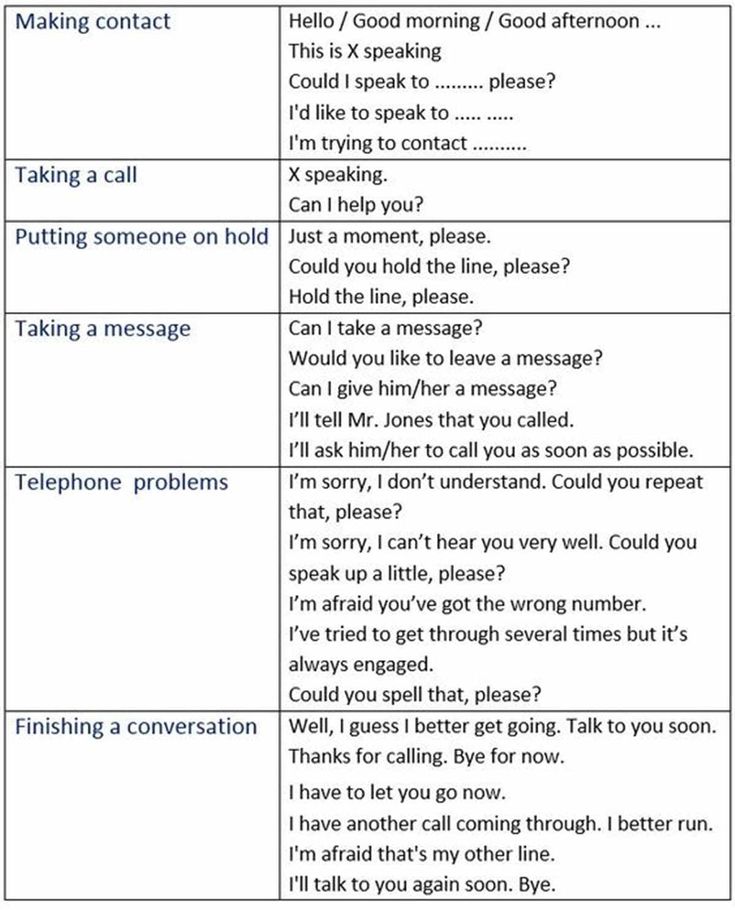 Why can't you leave from there?
Why can't you leave from there?
#34
#35
1082 5. I accept it, you won’t shut up the porly ... But this is rare .. Basically I yawn, especially when the conversation comes about everyday life or about children .. It’s just puking these conversations in colors and faces about children ((((I don’t care much chtol I don’t know .. It’s just as if I lost faith in everything .. The empty meaninglessness of life lowered me to the bottom ... I know that nothing awaits me except paying taxes and merry times for pennies, illness and oblivion, loneliness and torment .... And somehow not up to communication skills chtoli
New topics
-
Plastic surgeons
No answers
-
bought too expensive sweater
6 answers
250, 9000 9000 10 000 10000 10000 -
What to give mom?
5 answers
The return of people from the past
3 answers
#37
Guest
This is at the moment. But there can be no limit to perfection. Hone a skill that doesn't exist. I also always go into the team as a slut, so that the people get close and get close until I examine them properly. And then I already understand how to make the weather and mood there
But there can be no limit to perfection. Hone a skill that doesn't exist. I also always go into the team as a slut, so that the people get close and get close until I examine them properly. And then I already understand how to make the weather and mood there
Any person who sits and loads pushes away, if this is not a good friend. You're not nasty, you just can't relax.
#38
#39
#39
we have a lot of guests 900 too!)) But if I start a conversation with someone in spirit, do not pull it apart) do you communicate with someone one on one?
#40
Author
Yes, one on one is fine. But when there are a lot of people, then I am clamped down
#41
#42



